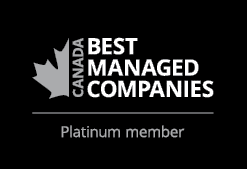Mandatory coverage for most Canadian employers
Workers’ Compensation (WC) legislation mandates Canadian employers to have insurance that provides income replacement, health care, and rehabilitation services to employees who experience a workplace injury or illness. The scope of the WC landscape is not only vast; it’s contoured and interconnected. Employers are directed to create, implement, and maintain a WC Program—a task that can be daunting for Human Resources and costly to the operation.
While some employers may be exempt from paying into workers’ compensation insurance due to the nature of their industry, most businesses in Canada require the insurance coverage. Each province has its own workers’ compensation board that determines the rules and regulations and runs the program. In Ontario, for example, there are over 300,000 businesses covered by the Workplace Safety and Insurance Board (WSIB).
Employers bear the cost of WC benefits in exchange for protection from lawsuits arising from work-related injuries or illnesses. Workers give up their right to sue their employers and receive benefits at no cost for work-related injuries or disease. Negligence and fault for the cause are not considerations. The insurance premiums for Schedule 1 employers are based on their payroll, industry classification, and claims experience, calculated on a rate per $100 of insurable earnings. Rates across the provinces range from as low as $0.95 per $100 of payroll to $2.65 (based on 2018 data).
For example:
100
Schedule 2 employers pay all their own claim costs dollar for dollar, plus administration fees. The lower the claim volumes, especially lost-time claims, the lower the cost for the employers.
It’s in an employer’s best financial interest to have strong WC claims management
Employers may feel there’s little they can do to control their premiums, but many strategies can help manage WC costs. WC case managers can assess and decide on all benefit entitlement decisions; however, employers have a right to appeal the decision if they feel a claim is not justified. This process can be time-consuming for employers, and a lack of knowledge around the process may deter HR from pursuing this cost-savings strategy. An experienced third-party provider can remove the burden from HR while providing other administrative and cost-relief and cost transfer measures, including:
- WC form completion and submission, preventing penalties due to a delayed application
- Ensuring employees who are applying are eligible; managing objections and appeals, when warranted
- Organizing and facilitating early and safe modified work to reduce (or better avoid) lost time due to workplace injuries/illnesses
- Assist with rate reviews and financial analysis
- Application for Secondary Injury Enhancement Fund (SIEF)
- Provide paralegal support for tribunals and WC audits
Build a healthier workplace.
No longer just physical injuries
When most people think of workers’ compensation, they think of physical injury, illness or post-traumatic stress disorder (PTSD) suffered from witnessing or suffering a life-threatening or traumatic workplace event. However, several workers’ compensation boards have amended their policies to include other forms of workplace psychological injury, including cumulative exposure to harassment and bullying. For example, on January 1, 2018, WSIB implemented Bill 127, the Chronic Mental Stress Policy. The board determined that work-related chronic stress is a compensable diagnosis when it can be established that an employee has experienced long-term and substantial work-related stressors such as exposure to dangerous conditions or ongoing harassment and bullying. A worker is not entitled to claim for chronic mental stress caused by an employer’s actions related to the worker’s employment, including jobs performed, or conflict with a co-worker or manager where harassment or bullying has not been identified. The policy added a new layer of complexity for employers by requiring changes to their occupational health and safety programs. In October 2017, the CSA and MHCC launched the Voluntary Standard for Psychological Health and Safety in the Workplace (the “Standard”). The Standard provides employers of all sizes with easy-to-use prevention, promotion, and policy implementation guidelines specific to psychological safety.
Addressing all facets of employee health and safety
So how does an employer ensure their occupational claims management program addresses all facets of employee health and safety? Whether managing in-house or outsourcing to a third party with workers’ compensation expertise, a well-managed occupational claims management program starts with prevention and incorporates best practices in claims management. Having processes built around employee health and physical and psychological safety will help reduce workplace injuries and illnesses. It can also improve employee health and well-being, which translates into improved workplace culture, lower workers’ compensation insurance premiums and claim costs, reduced absenteeism and benefit spending, and greater productivity.
Visit our Occupational Claims Management Services page to learn more.





